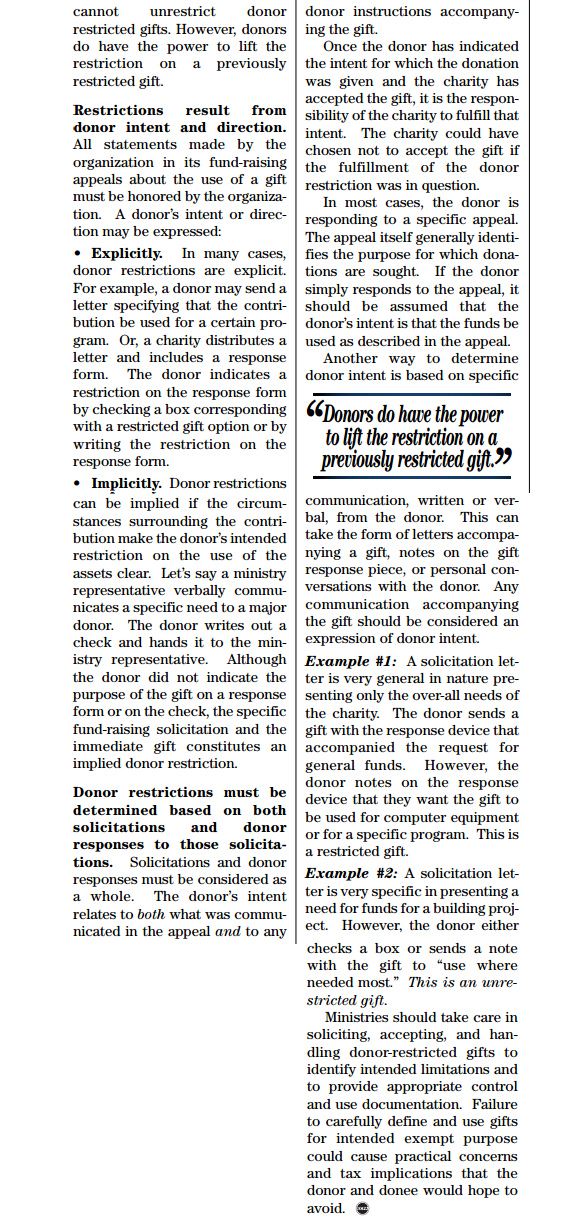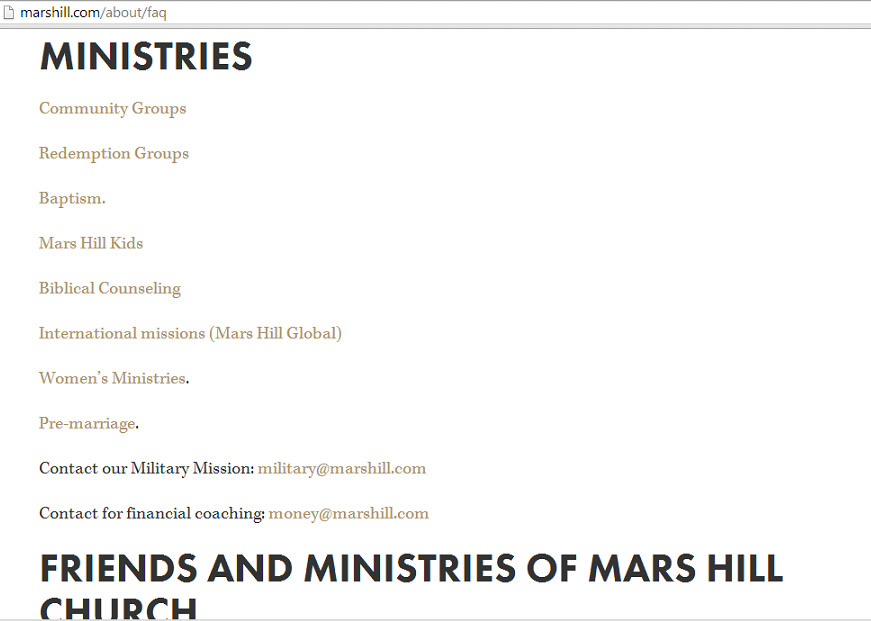In March 2014, Mars Hill Church’s Board of Advisors and Accountability issued a statement regarding the church and Mark Driscoll. One area covered was church governance changes made in 2007. Here is that statement:
CHANGES TO GOVERNANCE
For many years Mars Hill Church was led by a board of Elders, most of whom were in a vocational relationship with the church and thus not able to provide optimal objectivity. To eliminate conflicts of interest and set the church’s future on the best possible model of governance, a Board of Advisors and Accountability (BOAA) was established to set compensation, conduct performance reviews, approve the annual budget, and hold the newly formed Executive Elders accountable in all areas of local church leadership. This model is consistent with the best practices for governance established in the Evangelical Council for Financial Accountability standards. Mars Hill Church joined and has been a member in good standing with the ECFA since September of 2012.
According to this video by Mark Driscoll, we now know that the changes were made in order to keep Mars Hill Church from killing Mark Driscoll:
And so everybody got to speculate for years what the motive was, “oh he’s power hungry, he’s controlling, he wants to take over, he doesn’t love people, you know he’s just a bully.” And no, it’s actually he’s broken and his wife is hurting and the church is gonna probably literally kill him or put him in the hospital and his wife needs him right now, so he’s gotta make some adjustments. So, you know, by the grace of God, we weathered that storm.
One of those “adjustments” was the change in by-laws and governance.
In April, I raised some concerns about the model of governance at Mars Hill Church, specifically the BOAA. Then I wrote:
If Mars Hill truly is in compliance with what ECFA [Evangelical Council for Financial Accountability] considers to be good governance, then I should also turn my attention to the ECFA. I think the ECFA guidelines seem reasonable for a non-profit organization that is not a church. However, I question how a local church can adopt these guidelines and still be a church. To me, Mars Hill and other stand alone megachurches seem more like mini-denominational organizations than local churches. I will explore these ideas in my next post on the ECFA and Mars Hill, probably tomorrow.
I said at that time that I wanted to expand on those thoughts in a future post. With Paul Tripp’s resignation statement, I think now is a good time to do that.
About the form of governance used at Mars Hill and recommended by the ECFA, Paul Tripp said:
But it became clear to me that a distant, external accountability board can never work well because it isn’t a firsthand witness to the ongoing life and ministry of the church.
Such a board at best can provide financial accountability, but it will find it very difficult to provide the kind of hands-on spiritual direction and protection that every Christian pastor needs. Unwittingly what happens is that the external accountability board becomes an inadequate replacement for a biblically functioning internal elder board that is the way God designed his church to be lead and pastors to be guided and protected.
So, since I knew that I could not be the kind of help that I would like to be through the vehicle of the BoAA, I resigned from that position.
I would still love to see the leadership community of Mars Hill Church become itself a culture of grace and I am still willing to help, but not through the means of a board that will never be able to do what it was designed to do.
Tripp says the type of board required of churches to be ECFA accredited “can never work well.” Such a board is “an inadequate replacement for a biblically functioning internal elder board,” according to Tripp. Mars Hill Church had an elder board in place before Driscoll made his “adjustments” and such an elder board is what many of the Mars Hill members in exile are hoping to see restored.
Tripp says the BOAA “will never be able to do what it was designed to do.” I call on the ECFA to consider Tripp’s words and reconsider their guidelines for churches.


